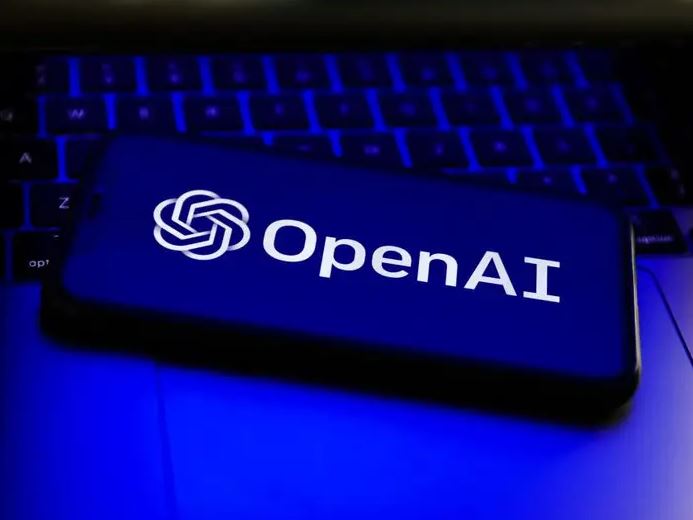OpenAI, the artificial intelligence company behind ChatGPT, is reportedly working on a groundbreaking new AI technology codenamed “Project Strawberry.” This previously undisclosed initiative aims to dramatically enhance the reasoning capabilities of AI systems, potentially leading to major breakthroughs in autonomous research and problem-solving.
According to internal documents and sources familiar with the matter, as reported by Reuters, Strawberry represents a novel approach to training and processing AI models. The project’s goal is to enable AI to perform complex cognitive tasks that have so far eluded existing systems, including the ability to “plan ahead” and navigate the internet autonomously to conduct what OpenAI terms “deep research.”
Evolution from Q* to Strawberry
Strawberry appears to be an evolution of an earlier OpenAI project known as Q*, which generated significant internal excitement for its advanced reasoning abilities. Sources who witnessed Q* demonstrations reported its capability to solve complex math and science problems beyond the reach of current commercially available AI models.

While OpenAI has not publicly confirmed specifics about Strawberry, a company spokesperson told Reuters: “We want our AI models to see and understand the world more like we do. Continuous research into new AI capabilities is a common practice in the industry, with a shared belief that these systems will improve in reasoning over time.”
The Quest for Human-Level AI Reasoning
The pursuit of human-level AI reasoning is a central focus across the tech industry, with companies like Google, Meta, and Microsoft all exploring various techniques. Experts believe that achieving this breakthrough could unlock the potential for AI to drive scientific discoveries, develop complex software, and tackle challenges that currently require human intuition and planning.
OpenAI CEO Sam Altman has emphasized the importance of reasoning in AI development, stating earlier this year that “the most important areas of progress will be around reasoning ability.”
Specialized Post-Training and Long-Horizon Tasks
While the exact mechanisms behind Strawberry remain secret, sources suggest that it involves a specialized form of “post-training” – a process of refining AI models after they’ve been trained on massive datasets. This post-training phase, potentially involving techniques like “fine-tuning” and self-generated training data, is crucial for honing the AI’s reasoning abilities.
The internal OpenAI document reviewed by Reuters indicates that Strawberry is being developed with a focus on performing “long-horizon tasks” (LHT). These are complex tasks that require an AI model to plan ahead and perform a series of actions over an extended period of time. Specifically, OpenAI wants its models to use these capabilities for conducting research by browsing the web autonomously with the support of a “computer using agent” (CUA) that can take action based on its findings.

Similarities to Stanford’s “Self-Taught Reasoner”
One source familiar with the matter noted similarities between Strawberry and a method developed at Stanford University in 2022 called “Self-Taught Reasoner” or “STaR.” This technique enables AI models to “bootstrap” themselves into higher intelligence levels by iteratively creating their own training data. Stanford professor Noah Goodman, one of STaR’s creators, told Reuters that in theory, this approach could be used to get language models to transcend human-level intelligence.
“I think that is both exciting and terrifying…if things keep going in that direction we have some serious things to think about as humans,” Goodman said, while noting that he is not affiliated with OpenAI and is not familiar with Strawberry specifically.
Challenges in AI Reasoning
While large language models can already summarize dense texts and compose elegant prose far more quickly than any human, they often fall short on common sense problems whose solutions seem intuitive to people. Examples include recognizing logical fallacies and playing simple games like tic-tac-toe. When encountering these kinds of problems, current AI models often “hallucinate” bogus information.
AI researchers generally agree that reasoning, in the context of AI, involves the formation of a model that enables AI to plan ahead, reflect on how the physical world functions, and work through challenging multi-step problems reliably. Improving reasoning in AI models is seen as the key to unlocking their ability to make major scientific discoveries and plan and build new software applications.
Industry-Wide Efforts and Debates
Other major tech companies are also working on improving AI reasoning capabilities. However, researchers differ on whether large language models (LLMs) are capable of incorporating ideas and long-term planning into how they make predictions. For instance, Yann LeCun, one of the pioneers of modern AI who works at Meta, has frequently stated that LLMs are not capable of human-like reasoning.
Recent Developments and Demonstrations
On Tuesday, OpenAI reportedly held an internal all-hands meeting where they demonstrated a research project claiming to have new human-like reasoning skills, according to Bloomberg. An OpenAI spokesperson confirmed the meeting but declined to provide details of its contents. It remains unclear whether this demonstration was related to Project Strawberry.
In recent months, OpenAI has reportedly been signaling to developers and other outside parties that it is on the cusp of releasing technology with significantly more advanced reasoning capabilities. This has fueled speculation and anticipation within the AI community about potential breakthroughs on the horizon.

Implications and Future Prospects
If successful, Project Strawberry could represent a significant leap forward in AI capabilities. The ability for AI to autonomously conduct “deep research” by navigating the internet and planning complex, multi-step actions could have far-reaching implications across various fields, from scientific research to software development.
However, the development of such advanced AI reasoning systems also raises important ethical and societal questions. As AI systems become more capable of human-like reasoning and autonomous action, concerns about their potential impact on human decision-making, job displacement, and even existential risks will likely intensify.
While many details about Project Strawberry remain shrouded in secrecy, its emergence highlights the ongoing race to develop more advanced AI reasoning capabilities. As OpenAI and other tech giants push the boundaries of what’s possible in artificial intelligence, the coming years may see significant breakthroughs that could reshape our understanding of machine intelligence and its role in society.

As this technology continues to evolve, it will be crucial for researchers, policymakers, and the public to engage in ongoing discussions about the implications of increasingly sophisticated AI systems. The potential benefits of advanced AI reasoning are immense, but so too are the challenges and risks that must be carefully navigated as we enter this new frontier of artificial intelligence.
Copyright©dhaka.ai
tags: Artificial Intelligence, Ai, Dhaka Ai, Ai In Bangladesh, Ai In Dhaka, Future of AI, Artificial Intelligence in Bangladesh, OpenAi



